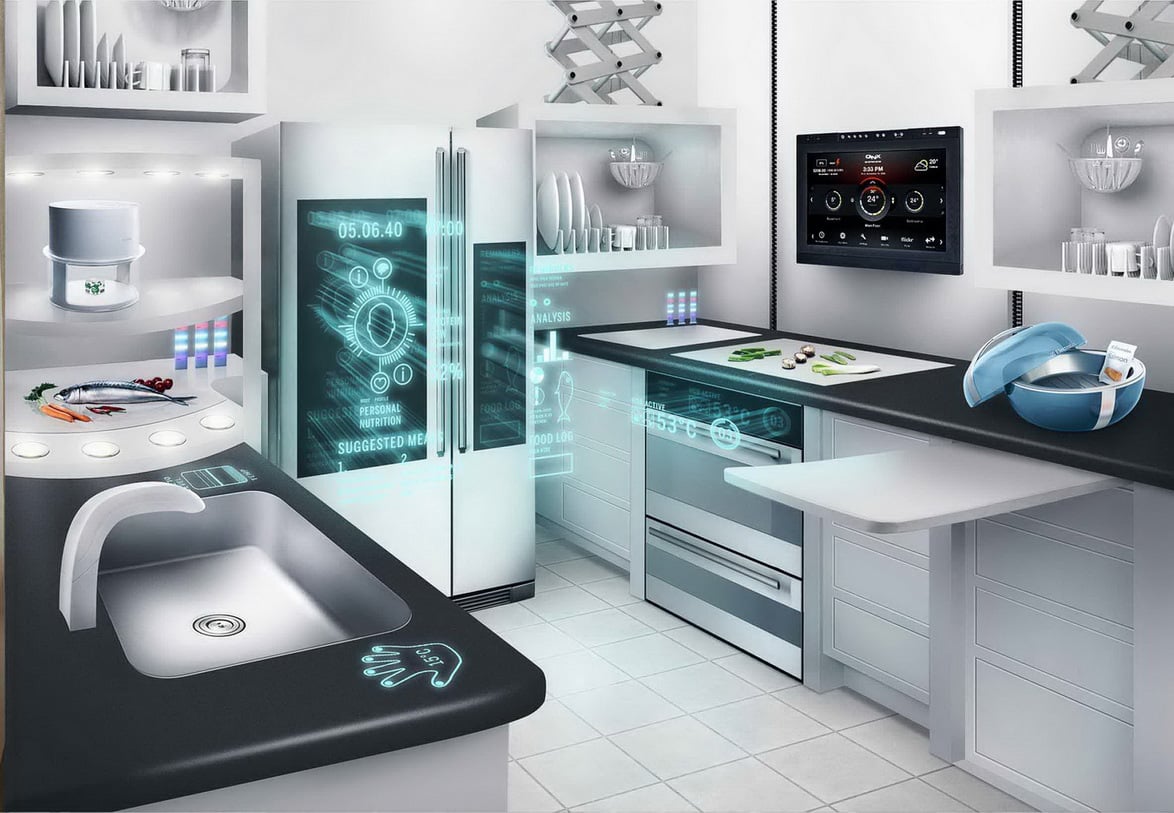Introduction:
In an era dominated by technological advancements and the growing trend of smart homes, the integration of smart appliances has become a noteworthy factor influencing the real estate landscape. Homebuyers in the United Kingdom are increasingly valuing the convenience, efficiency, and connectivity offered by smart appliances. This article explores the impact of smart appliances on UK home values, shedding light on the ways in which these technological innovations are reshaping the perception of modern living and influencing property prices.
The Evolution of Smart Homes in the UK
Rise of Smart Technologies:
The UK has witnessed a significant rise in smart home technologies, with an increasing number of homeowners adopting devices that enhance security, energy efficiency, and overall convenience.
Integration of Internet of Things (IoT):
The Internet of Things (IoT) has played a pivotal role in the development of smart homes. Connected devices, including smart appliances, communicate with each other to create a seamless and automated living experience.
Consumer Demand for Connectivity:
The demand for connectivity and smart features in homes is driven by consumer expectations for modern and efficient living. Smart appliances, ranging from refrigerators to thermostats, are becoming key components of this technological transformation.
Defining Smart Appliances
Connectivity and Automation:
Smart appliances are characterized by their connectivity and automation capabilities. These appliances can be controlled remotely, offer programmable features, and often integrate with smart home ecosystems.
Examples of Smart Appliances:
- Smart Refrigerators: Equipped with features like inventory tracking, temperature control, and the ability to suggest recipes based on available ingredients.
- Smart Thermostats: Provide remote control of heating and cooling systems, optimize energy usage, and learn user preferences over time.
- Smart Lighting Systems: Enable users to control lighting settings remotely, adjust color temperatures, and create personalized ambiance.
Energy Efficiency and Sustainability:
Many smart appliances emphasize energy efficiency and sustainability, contributing to reduced energy consumption and environmental impact.
The Influence of Smart Appliances on Home Values
Increased Property Appeal:
Homes equipped with smart appliances tend to have increased appeal among homebuyers. The allure of a modern, connected home can positively impact the perceived value of the property.
Enhanced Convenience and Efficiency:
The convenience and efficiency offered by smart appliances contribute to the overall functionality of a home. Homebuyers often see value in the time-saving and streamlined lifestyle facilitated by these technologies.
Energy Savings and Sustainability:
Smart appliances that prioritize energy efficiency align with the growing emphasis on sustainable living. Energy-saving features can translate into lower utility bills, making homes more attractive to environmentally conscious buyers.
Smart Appliances and Homebuyers’ Preferences
Tech-Savvy Millennials:
Millennials, a significant demographic in the UK housing market, are particularly drawn to smart homes and innovative technologies. Smart appliances align with the preferences of tech-savvy buyers who value convenience and connectivity.
Integration with Smart Home Ecosystems:
The ability of smart appliances to integrate seamlessly with broader smart home ecosystems, including voice assistants and home automation platforms, is a key factor influencing homebuyers’ preferences.
Home Automation Trends:
The rise of home automation trends, where various systems in a home can be controlled centrally, reinforces the appeal of smart appliances. Homebuyers appreciate the prospect of managing multiple aspects of their living spaces through a unified interface.
Assessing the Impact on Property Prices
Appraisal Challenges:
Assessing the direct impact of smart appliances on property prices can be challenging due to the evolving nature of technology and the varying preferences of individual buyers.
Value Perception:
While it may be challenging to quantify a precise monetary value, the enhanced perception of value associated with smart appliances can contribute to a higher willingness to pay among potential buyers.
Market Trends and Comparisons:
Analyzing market trends and comparing property values in areas with a higher prevalence of smart homes can provide insights into the potential impact on property prices.
Considerations for Home Sellers
Highlighting Smart Features:
When selling a home equipped with smart appliances, highlighting these features in marketing materials and property listings can attract tech-conscious buyers.
Educating Potential Buyers:
Providing information on the benefits and functionalities of smart appliances can educate potential buyers about the added value these technologies bring to the home.
Home Automation Infrastructure:
Homes with a well-established infrastructure for home automation, including smart appliances, may be positioned as more attractive options in the real estate market.
Challenges and Concerns
Technology Obsolescence:
One concern associated with smart appliances is the rapid pace of technological advancements. Homebuyers may worry about potential obsolescence and the need for frequent updates.
Privacy and Security:
The connectivity of smart appliances raises privacy and security concerns. Addressing these issues and implementing robust security measures can help alleviate buyer apprehensions.
Initial Cost vs. Long-Term Savings:
The initial cost of installing smart appliances may be a deterrent for some homebuyers. Emphasizing the long-term savings, energy efficiency, and potential increase in property value can help mitigate concerns.
Future Trends in Smart Home Technologies
Integration of Artificial Intelligence (AI):
The integration of AI into smart home technologies is a future trend that holds promise for enhanced automation, personalized experiences, and improved energy efficiency.
Expanding Range of Smart Appliances:
The range of smart appliances is expected to expand, encompassing various aspects of home life, from kitchen and laundry appliances to smart home security and entertainment systems.
Energy Monitoring and Management:
Smart appliances that monitor and manage energy consumption are anticipated to play a crucial role in future home technologies. This aligns with the growing emphasis on sustainability and energy efficiency.
Conclusion: Smart Homes and the Changing Real Estate Landscape
As smart appliances continue to weave their way into the fabric of modern living, their impact on UK home values becomes increasingly pronounced. The allure of a connected, efficient, and sustainable home resonates with a new generation of homebuyers who value the benefits offered by smart technologies. While challenges such as obsolescence and security concerns exist, the overall trend towards smart homes is expected to shape the real estate landscape in the coming years. As homeowners and homebuyers alike navigate the intersection of technology and real estate, the incorporation of smart appliances emerges as a defining factor in the evolving concept of modern living in the United Kingdom.
About The Author
Sarah Davis
Sarah Davis is an amazing person. She is a housewife who enjoys cooking and keeping her home in order. In her spare time, she enjoys writing and reviewing home appliances.

